News
Egg substitutes driven by vegan, allergen-free demand
13 Nov 2018Egg replacers have long been used as a way to avoid to the price fluctuations often associated with real eggs, but recently interest has been driven by manufacturer demand for clean label and plant-based ingredients, allowing companies to make more vegan and allergen-free claims.

Industry sometimes has been reluctant to use egg alternatives because of potential issues with their taste, texture and functionality in finished products when compared with real eggs. But rising interest in vegan and plant-based ingredients has encouraged a growing number of manufacturers to take eggs out of their product formulations. In addition, factors such as product recalls linked to salmonella contamination, as well as the generally lower cost of substitute ingredients, add up to a buoyant market.
According to a report from ResearchAndMarkets, the global egg replacement ingredients market is set to grow 5.7% a year from 2017 to 2022, to reach a value of US$1.2 billion by 2022. Typical applications for egg replacers include baked goods, as well as sauces, condiments and creamy dressings.
Many of the available egg replacers are blends, such as the range from Corbion Caravan, which aims to tap into demand for dairy-free ingredients in cakes and chemically leavened batters. Its egg replacers are made from specialised whey proteins, gums, enzymes and emulsifiers, which could replace 50%-100% of eggs or egg whites.
However, such blends often lead to longer ingredient lists, and many companies wanting to tap into demand for clean labels now are looking at simpler alternatives that could be perceived as more natural, such as aquafaba, the liquid drained from canned chickpeas, which has excellent foaming properties, or fibres made from dried citrus pulp.
Fiberstar Inc says its ingredient line – based on dried orange pulp – can be used to replace not just eggs, but also oils, fats, stabilisers and emulsifiers. In sauces, the company says it is possible to switch out both egg and soy lecithin, for example, as a clean label, allergen-free alternative. Other egg alternatives include powdered vegetable fats, such as those supplied by Faravelli, or soy-based whole egg replacers, such as those from Caltech Corp Ltd.
Increasingly, major meat and dairy companies are investing in meat and dairy alternatives, and the egg sector may be about to follow suit. For example, the biggest meat company in the US, Tyson Foods, has started referring to itself as a protein company after investing in meat alternatives, and the nation’s largest dairy company, Dean Foods, continues to invest in a range of non-dairy products. Now, in Europe, Italy-based Eurovo
, which distributes eggs and egg products across the continent, plans to begin distribution of an egg replacer from US-based JUST, made from mung bean protein isolate.
Further innovation in animal-free egg alternatives looks likely, as these ingredients tap into such a large number of current trends, including flexitarian and plant-based eating, allergen-free and cruelty-free foods. What is more, egg specialists like Eurovo may be uniquely placed to encourage further developments in plant-based alternatives.
Related news
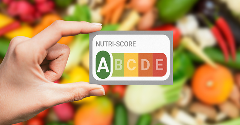
Danone removes NutriScore from products
20 Sep 2024
Following an algorithm update that gives some of its sweetened drinks a worse score, Danone has removed the front-of-pack label, NutriScore, from all of its products – putting profit before public health, say campaigners.
Read more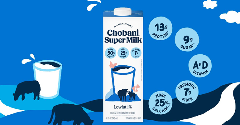
Chobani develops shelf-stable, prebiotic-enriched Super Milk
12 Sep 2024
Chobani has launched a prebiotic-enriched, shelf-stable, high-protein dairy milk to support people in disaster zones who need a nutritious drink that does not require refrigeration.
Read more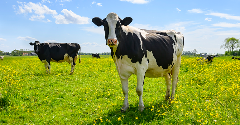
Tesco trials methane mitigation supplement for dairy cattle
5 Sep 2024
Tesco is trialing a methane-reducing feed supplement for one of its key UK dairy farms, sustainable UK milk producer Grosvenor Farms.
Read more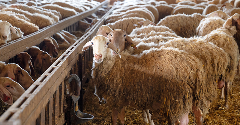
Sheep and goat plague: A new threat to Greece’s feta production
27 Aug 2024
A recent goat and sheep plague outbreak threatens feta production in Greece. The flagship product accounts for roughly 10% of the country’s food exports, but Greek authorities say there is no cause for concern.
Read more
Nestlé develops a new fat reduction method for dairy ingredients
26 Aug 2024
A Brazil-based Nestlé research and development team has developed a way to reduce the fat in milk powder by as much as 60%, without impacting the key characteristics that consumers enjoy.
Read more
Dutch court rules against plant-based butter brand ‘Roombeter’: Only dairy products allowed to use the word ‘cream’
26 Jul 2024
A Dutch court has ruled against Upfield’s plant-based butter, Roombeter, stating that its use of the word ‘room’ (cream) in the product name violates European regulations that protect dairy-related terms allowed for dairy products only.
Read more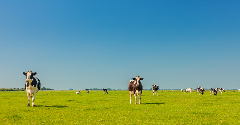
How will Denmark’s 2030 carbon tax impact farming?
12 Jul 2024
Denmark has announced plans to implement Europe’s first carbon tax on agriculture from 2030, targetting the farming sector’s CO2 emissions. How will it be implemented and how have farmers reacted?
Read more
Sweden updates front-of-pack Keyhole labelling rules
11 Jul 2024
The Swedish Food Agency has announced updates to the voluntary Keyhole logo, used in four Nordic countries, following recommendations to improve nutrition labelling.
Read more
Consumers dislike faba beans’ sensory profile
3 Jun 2024
Consumers display low acceptance of faba beans, with sensory properties such as bitterness a core concern, a study suggests. However, for product varieties such as cocoa-free chocolate, this attribute could prove to be a benefit.
Read more
Food scientists uncover new way to preserve nutrient and flavour quality
29 May 2024
Researchers have developed a method that guarantees food safety for low-moisture products, such as dried milk, while maximising quality by retaining vitamins, minerals, and flavours, they say.
Read more


